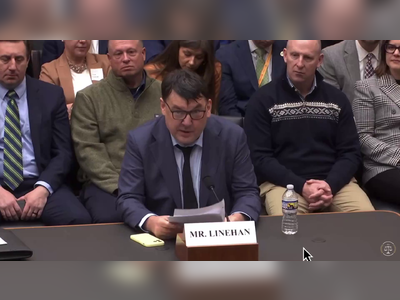
Controversy in Banking Sector: Proposed Law Mandates Compensation for Fraud Victims
A legislative proposal requiring financial institutions to cover customer losses from scams faces opposition from the banking sector due to potential repercussions.
A legislative proposal requiring financial institutions to compensate customers for losses incurred due to scams is generating controversy in the banking sector.
The proposed law, referred to as File 23.908, known as the _Law for the Protection of Consumer's Money Custodianship_, is scheduled for discussion in the Legislative Assembly this Tuesday, as indicated by the sponsoring deputy and head of the National Liberation Party (PLN) legislative fraction, Óscar Izquierdo.
The draft was initiated last year by the movement _Gente Estafada en Bancos de Costa Rica_ and has gained support from the deputy.
Proponents argue that the measure aims to provide support for scam victims.
However, the Costa Rican Banking Association (ABC) contends that the legislation could lead to a surge in fraudulent claims and has labeled the proposal as "simplistic, irresponsible, and risky."
Izquierdo noted that the project has already cleared the first stage of motions under Article 137 of the legislative rules and may return to the plenary session in the coming weeks for further processing.
Between 2023 and the first seven months of last year, the Public Ministry recorded 4,776 reports of cyber scams in San José, resulting in an estimated economic loss of approximately ¢7 billion (Costa Rican colones).
The ABC has expressed concerns that the initiative could encourage new scams and disrupt the balance of the national financial system.
According to the association, the law would obligate banks to automatically cover losses, even if they had taken all reasonable precautions to prevent fraud.
Rodrigo Cubero, the economic advisor for the ABC, emphasized that the proposal assumes banks are solely responsible for scams, whereas banking fraud often involves organized crime that affects both customers and financial institutions.
Cubero cautioned that such a law could lead to new criminal tactics and financial incentives for fraudulent activities.
He exemplified this with a reform enacted in Chile in 2020 that established similar responsibilities for banks.
Within a year, digital fraud cases surged, necessitating a legislative modification in 2024.
The financial sector warns that if banks must generally absorb the costs of scams, there could be wider implications, including lower interest rates for savers and higher rates for borrowers, impacting all financial consumers and the national economy.
Additionally, questions have arisen regarding the constitutionality of the proposed law, as it does not appear to provide a balanced approach to accountability between financial institutions and their clients when using digital services.
In response to the objections, Óscar Izquierdo defended the proposal, asserting that the current system inadequately protects users, particularly older adults, who frequently lose their savings without receiving timely responses from banks.
He stated that it is unreasonable for banks to remain in their current position, as they are entrusted with safeguarding depositors' money.
The deputy added that the draft includes mechanisms to detect and penalize users who simulate scams.
The law aims to amend three existing statutes:
1. _Law for the Promotion of Competition and Effective Defense of the Consumer_: The proposal seeks to add a clause stating that banks "shall have joint objective liability for damages or material or economic losses incurred by users and must compensate for damages caused when such users are harmed by the theft of money or assets from their accounts."
2. _General Public Administration Law_: It proposes to favor victims during the evidence process by stating that, "related to consumer protection, fraud, and similar banking entities, whether at the administrative or judicial level, the burden of proof shall favor the affected individuals."
While the proposed measures aim to provide restitution for victims, the banking sector raises concerns about the potential impact on institutional finances.
The proposed law, referred to as File 23.908, known as the _Law for the Protection of Consumer's Money Custodianship_, is scheduled for discussion in the Legislative Assembly this Tuesday, as indicated by the sponsoring deputy and head of the National Liberation Party (PLN) legislative fraction, Óscar Izquierdo.
The draft was initiated last year by the movement _Gente Estafada en Bancos de Costa Rica_ and has gained support from the deputy.
Proponents argue that the measure aims to provide support for scam victims.
However, the Costa Rican Banking Association (ABC) contends that the legislation could lead to a surge in fraudulent claims and has labeled the proposal as "simplistic, irresponsible, and risky."
Izquierdo noted that the project has already cleared the first stage of motions under Article 137 of the legislative rules and may return to the plenary session in the coming weeks for further processing.
Between 2023 and the first seven months of last year, the Public Ministry recorded 4,776 reports of cyber scams in San José, resulting in an estimated economic loss of approximately ¢7 billion (Costa Rican colones).
The ABC has expressed concerns that the initiative could encourage new scams and disrupt the balance of the national financial system.
According to the association, the law would obligate banks to automatically cover losses, even if they had taken all reasonable precautions to prevent fraud.
Rodrigo Cubero, the economic advisor for the ABC, emphasized that the proposal assumes banks are solely responsible for scams, whereas banking fraud often involves organized crime that affects both customers and financial institutions.
Cubero cautioned that such a law could lead to new criminal tactics and financial incentives for fraudulent activities.
He exemplified this with a reform enacted in Chile in 2020 that established similar responsibilities for banks.
Within a year, digital fraud cases surged, necessitating a legislative modification in 2024.
The financial sector warns that if banks must generally absorb the costs of scams, there could be wider implications, including lower interest rates for savers and higher rates for borrowers, impacting all financial consumers and the national economy.
Additionally, questions have arisen regarding the constitutionality of the proposed law, as it does not appear to provide a balanced approach to accountability between financial institutions and their clients when using digital services.
In response to the objections, Óscar Izquierdo defended the proposal, asserting that the current system inadequately protects users, particularly older adults, who frequently lose their savings without receiving timely responses from banks.
He stated that it is unreasonable for banks to remain in their current position, as they are entrusted with safeguarding depositors' money.
The deputy added that the draft includes mechanisms to detect and penalize users who simulate scams.
The law aims to amend three existing statutes:
1. _Law for the Promotion of Competition and Effective Defense of the Consumer_: The proposal seeks to add a clause stating that banks "shall have joint objective liability for damages or material or economic losses incurred by users and must compensate for damages caused when such users are harmed by the theft of money or assets from their accounts."
2. _General Public Administration Law_: It proposes to favor victims during the evidence process by stating that, "related to consumer protection, fraud, and similar banking entities, whether at the administrative or judicial level, the burden of proof shall favor the affected individuals."
While the proposed measures aim to provide restitution for victims, the banking sector raises concerns about the potential impact on institutional finances.











